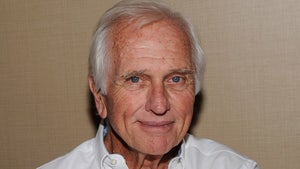COPA Feel? Go Ahead: Online Porn is Bill Dead
Quick, what's easier to filter out: Porn, or the minors who want to see it? Faster than you can say "derrière" the answer seems to be: The former.
As the Washington Post reports today, the Child Online Protection Act, a 1998 law that "made it a crime for Internet site operators to let anyone under 17 have access to sexual material" has officially croaked. (It never took effect because the court banned enforcement pending the outcome of yesterday's case.)
The government had argued that software filters are ineffective at keeping out every last nipple and wiener, while the ACLU countered, (unconvincingly, in my opinion) that the COPA law "could result in a loss of appropriate and valuable content for adults, including information about safe sex or art galleries with modern photography."
Still, the anti-COPA ruling is a legal precedent that will make it all-but-impossible to further regulate online smut:
Per Information Week, "The American Civil Liberties Union and Focus on the Family agree on very little, but both said the ruling will make it difficult for lawmakers to adopt similar legislation to protect children from online pornography." In other words, broadening COPA's reach would likely make it way too extreme, but narrowing its reach would make it even less effective than commonly available filters like "Net Nanny" or "Cyber Sitter."
The law was written in anticipation, but before the take-off of, broadband web video. The irony is, while the most egregious porn sites will continue to do whatever they please, the mainstream marketplace seemingly has regulated itself - and not out of fear of the government, but of community standards. TMZ's wildly successful because it toes that line so well: Just the hint of Britney's crotch; Miss USA's bust, sufficiently star-spangled to prevent your boss from going ballistic: Paparazzi photos that let you be savvy about what just happened, without feeling like you need to take a shower after viewing them.
Potter Stewart would be proud: He was the U.S. Supreme Court Justice who famously defined porn in 1964 by explaining, "...I know it when I see it."
As a result of yesterday's ruling, folks today can say the same thing.




